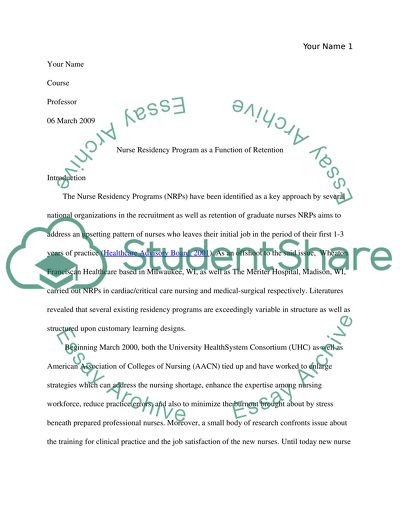Cite this document
(“Nurse Residency Program Essay Example | Topics and Well Written Essays - 2000 words”, n.d.)
Retrieved from https://studentshare.org/miscellaneous/1522860-nurse-residency-program
Retrieved from https://studentshare.org/miscellaneous/1522860-nurse-residency-program
(Nurse Residency Program Essay Example | Topics and Well Written Essays - 2000 Words)
https://studentshare.org/miscellaneous/1522860-nurse-residency-program.
https://studentshare.org/miscellaneous/1522860-nurse-residency-program.
“Nurse Residency Program Essay Example | Topics and Well Written Essays - 2000 Words”, n.d. https://studentshare.org/miscellaneous/1522860-nurse-residency-program.


